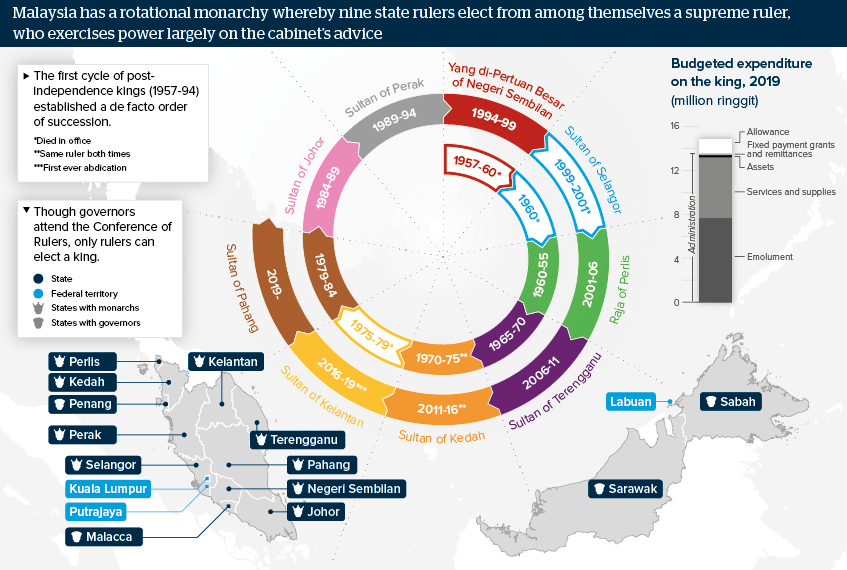Malaysia’s royal succession puts spotlight on monarchy
Sultan Abdullah of Pahang was today elected the country’s new king
Source: Oxford Analytica; Ministry of Finance Malaysia
Outlook
Sultan Muhammad V of Kelantan on January 6 resigned as Malaysia’s king, just over two years into his five-year term. The palace never confirmed reports that he last November married a Russian model.
The Conference of Rulers today confirmed Sultan Abdullah of Pahang as the new king. The sultan on January 15 succeeded his father as the ruler of the country’s third-largest state, paving the way for his election as supreme ruler.
While the royal elite appears to have resolved any internal tensions, Malaysia could be caught between conflicting pressures to protect the constitutional monarchy’s reputation and limit individual rulers’ power.
Impacts
- Prime Minister Mahathir Mohamad, who curbed rulers’ legal immunity when previously premier, could try to reduce the king’s expenditure.
- The government may repeal the Sedition Act but also pass new legislation criminalising perceived insults to the monarchy.
- Mahathir and Sultan Ibrahim of Johor will emphasise cordial ties, but they could clash further over infrastructure and environment policies.
- The monarchy will increasingly become a rallying point for Malay-Muslim nationalists.
See also
- Malaysia will be unstable until elections take place - Mar 6, 2020
- Malaysia court U-turn shows force of race politics - Apr 8, 2019
- Malaysia’s new government will face struggle for unity - May 10, 2018
- More graphic analysis
